|
What argument
best justifies the killing of other human beings to a six-year-old who
asks the question: "When is it right to kill somebody, G-Pa?" It's
a titanium nail question, one that grinds teeth to the core as you
chew on it, trying to find a reason why the death of one human being
justifies the life of another. While each person will walk their own
path in answering this troubling issue to their child, grandchild or
loved one, this writer faced a strange answer to the dilemma, one that
even shocked him. Find out how he answered it, and be prepared for
your own question. |
 VigilanceVoice VigilanceVoice
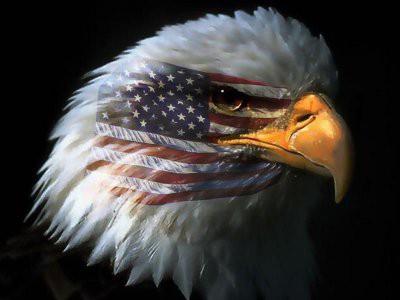
www.VigilanceVoice.com
Sunday--January
5, 2003—Ground Zero Plus 480
___________________________________________________________
Why We Should Eat Everyone We Kill As An Act Of Vigilance
___________________________________________________________
by
Cliff McKenzie
Editor, New York City Combat Correspondent News
|
GROUND ZERO, New York City, Jan. 5-- Moral
dilemmas are a part of being human. They pose both a gift and
curse, for there is no "right" answer to most of them. The
answers shift like the sand in the desert, and while one answer might
fit one situation, it changes in another and another by circumstance
and time, as though morality itself were a ball of warm wax, shaped by
the flickering of its descending wick.
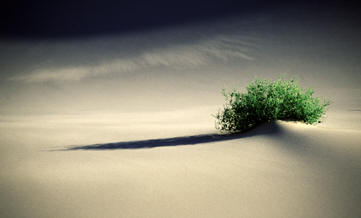
|
|
The answers
to Moral dilemmas shift like desert sand |
That's why we have such
camps as Liberal and Conservative, the dove and the hawk, the
spiritual and secular. Soft forces oppose hard ones,
Pacific's confronts militarism.
As America marches to the drums of
war and straps on the tools of death and destruction, it forces a
Parent of Vigilant to be prepared to answer the big question from his
or her children, grandchildren or Loved Ones--"Why are we killing
people?"
No one likes that question.
As a U.S. Marine combat vet in
Vietnam with more than 100 missions under my belt, I still recoil when
someone asks me, "How many people did you kill?"
The hardest of all confrontations
came a number of years ago when I went to pick up my daughter and her
friend at a nail salon in Laguna Niguel, California. It was run
by Vietnamese. My daughter had been telling the nail
ladies her father was a Marine in Vietnam so when I came into the shop
one of the Vietnamese girls who worked there looked up at me and
boldly asked: "How many my people you kill?"
I remember answering very quickly,
very firmly. "Only the bad ones!"
That wasn't a moral answer to a moral
question. It was a quick response to long-term indictment.
But it has haunted me ever since.
Sometimes, I assume the total of all
the Vietnamese dead on my shoulders--more than 2 million.
I feel like the guy who kills someone in a criminal act, now a
murderer facing a death sentence, who says, "what the heck, I might as
well kill everyone who gets in my way because I'm already a murderer."
Killing is like that.
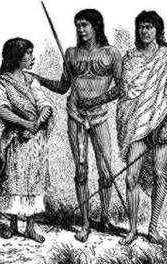
|
|
According to Kalinga Tradition in Phillipine history, a boy had to
taste the blood of his first victim before the village recognized
him as a warrior. This would ensure he would not die young. |
The first kill is the hardest.
Once
you know you can kill and the blood is on your hands, the rest is
easy, or, perhaps, easier. A moral wall goes up.
You become numb to the idea that death is wrong, that death warrants
can only be issued by society, by the group of humanity as the most
severe punishment. You become the judge and jury.
You issue your own death warrants. You justify the
elimination of human beings as though you were God, without answering
to any Higher Order for your acts.
It's called the "Taste of
Blood."
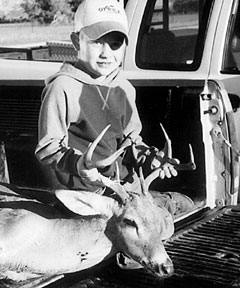 |
|
A boy's first
deer kill |
Even today
it is common for someone teaching a child or novice how to hunt deer,
that after killing his or her first deer, an ancient ritual is
performed. The deer's heart is cut out and the child or new
hunter is baptized into the world of "killing" by taking a bite of the
heart, tasting the blood of the victim on the spot. He now
belongs to an elite tribe--the tribe of killers. He has taken
life. And even though he has a license that says he can,
and even though he killed to eat, there is something far more primal
about ripping off a chunk of bleeding warm heart muscle and chewing it
before the others gathered around the kill. It is a rite of
"passage," from the civilized back to the uncivilized, a cutting of
ones self from the herd of humanity who have not tasted blood.
I happen to know a cop who has
killed six people in the line of duty. He seems like a very
nice, peaceful person if you didn't know his record, his history.
You wouldn't blink an eye about letting your kids play with him, or
worry about entrusting him with their safety or lives. If
you bumped into him by accident on the street he'd probably say excuse
me and smile. He would probably hold open the door for
someone, and could easily be a coach of a little league team or help
preach at the local church. But, once you know he
has killed six people in the line of duty you suddenly see him in a
different light.
It isn't that he just
killed one person. Or two. Or even three over his career.
But six? That seems like a lot, especially for a cop when
most cops never get a chance in a whole career to draw their weapon
let alone fire it at someone.
Justifying killing people isn't
an easy task even when the right to kill is "legal" and "morally
sanctioned" by either the society or the circumstance, such as being
in the military or law enforcement where use of lethal force is
authorized.
But killing isn't necessarily
authorized as "just" unless such killing meets the "Rules of War."
Police shootings, for example, undergo heavy scrutiny to insure lethal
force was used properly. War killings are loosely managed,
and yet provisions exist for defining when "killing" is not-justified.
The My Lai incident is one, in which Lt. Richard Calley was found
guilty of slaughtering Vietnamese villagers.
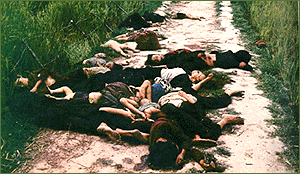 |
|
The My Lai
massacre |
So, in
thinking about how to answer my grandson's question about the "right
to kill," I've decided to make it a simple response.
My grandson watches a lot of
nature programs on the Discovery Channel. He's also into
dinosaurs.
In nature, killing is
authorized for one primary reason--food. A frog kills a
fly to eat it. A lion kills a gazelle to eat it. A
cow kills grass and hay to eat it. A wolf kills a rabbit
to eat it.
It isn't killing that is bad,
it's for what reason does one kill that makes it bad.
Animals don't kill because they
want to take over the world. Yes, they will kill to
drive off an enemy, or protect their territory or young, but as a
general rule the ants don't wage war on gorillas, and the birds,
despite Alfred Hitchcock's movie, don't wage war on humans.
Nature coexists on a symbiotic platform, a "food chain" where one
creature eats another to survive.
That's acceptable because
its natural.
When humans kill a cow,
it's so we eat it in the form of a hamburger or steak.
That's okay--unless
you're a vegan.
But war?
Killing for killing's sake?
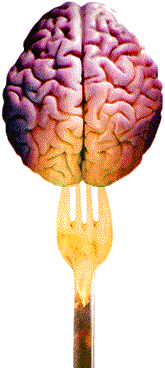 |
Well,
I could go into a lot of justifications for war, political, social,
moral, geographical, economic, but I'm not going to with a
six-year-old.
When faced with that
question: "When is killing another human being justified," I'm
going to simply say, "only for food."
Now, my grandson
will recoil from that answer, as he should.
I'll carefully
explain to him that killing is justified in the animal world under two
conditions--for food and to defend the young or the self.
In the human world,
if we looked at killing the same way, the only justification for
killing another human being would be to eat him or her.
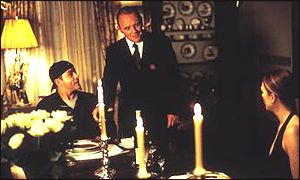 |
|
Hannibal, the
Cannibal, Lechter ate his victims |
I would tell my grandson that if every warrior had to eat whomever
he or she killed, that wars would stop pretty quickly.
Since eating people is a crime against humanity, then killing people
and having to eat them would soon be outlawed.
I would
continue that when someone killed something, there should be a law
that required them to eat what they killed--unless, of course, what
they killed was posing a clear and present danger to their life.
A rat infected with bubonic plague about to bite a baby would be
exempt from the "kill and consume" dictum.
Of course my
grandson would say, "Aw, G-Pa!"
But I
would have given him an honest answer.
I would have
reduced the principle of killing to its lowest common denominator.
If we, as
human beings, demanded that whoever killed whomever had to eat them,
we wouldn't need a death penalty. If we televised
murderers sitting at a gourmet table with their victims spread out on
the table and armed guards around him or her forcing him to eat the
person or persons he or she killed, few people would want to murder
others. It far more revolting to think of eating
your victim than to be given a death sentence for doing so.
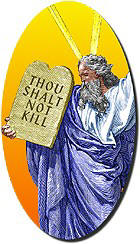 |
Absurd?
Perhaps.
But if I am a
Vigilant Parent or Grandparent of Vigilance, I want my grandson to
realize that taking life for no practical reason such as for food or
in defense of life and limb, is a crime against nature.
So is eating human
beings a crime against nature.
Since I know the
Taste of Blood, I know it is an ugly taste.
Teaching a child to
never want to Taste The Blood Of Others is not a bad idea.
If only the adults
agreed, we'd all be better off.
|
Jan 4--The Day Guns Were Banned In NYC
©2001
- 2004, VigilanceVoice.com, All rights reserved - a ((HYYPE))
design

|
|